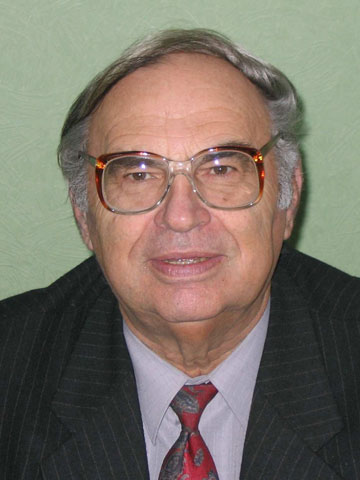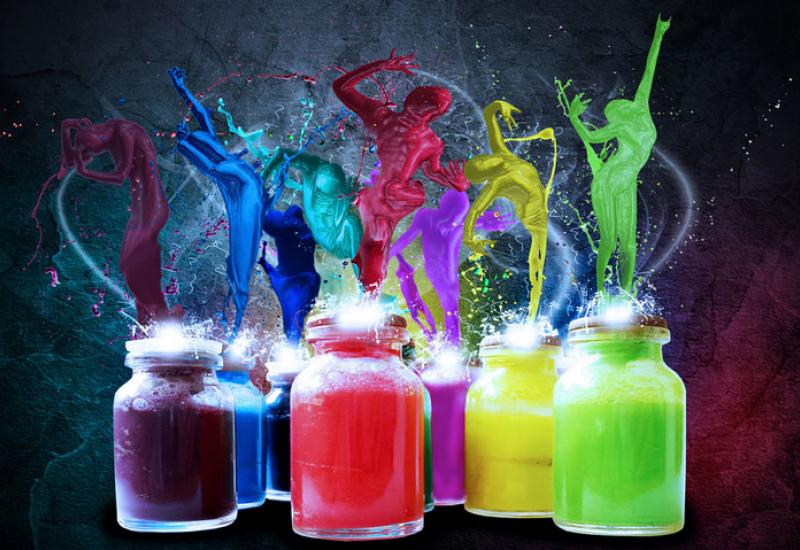Among the main program tasks is to improve the quality of education "KPI", proclaimed on August 29 this year at the general meeting of teachers of the university rector prof. M. Zgurovsky is the problem of transition from "reproductive" learning to "creative" that is creative.
Prestige of engineer in a specific enterprise and society is defined primarily at the resulting of its technical work. According to documents UNESCO "in general, the engineer called worker who knows how to creatively use scientific knowledge to design and build industrial plants, machinery, equipment, develop or apply production methods using different tools separately or in different complexes or design these tools to use them, knowing their principle of action and foresee their behavior in certain conditions."
 To promote the creative activity of future specialists can be developing by these characteristics:
To promote the creative activity of future specialists can be developing by these characteristics:
- curiosity, that is, the ability to observe the world around them, to look at things carefully, look closely before they act, to find hidden items and functions;
- ability to conduct engineering analysis, ie the ability to apply scientific knowledge to a comprehensive study of the phenomenon and object;
- a thorough knowledge of specific engineering specialties;
- broad specialization, ie the ability to competently and confidently understand the basic problems related disciplines;
- mathematical skills, ie the ability if necessary to apply powerful mathematical tools and computational methods;
- ability to make decisions, often in cases of uncertainty, but comprehensive account of all existing factors;
- Knowledge of production technology, that understanding of the opportunities and limitations of both former and new manufacturing processes;
- ability to clearly and convincingly express their opinion verbally, in writing and graphically;
- correct perception of criticism;
- expansion capability to "collapse" and "grip" information to its "transfer" to another object.
In organization of educational process should take into account factors that affect efficiency of work of creative workers:
- independence in the choice of themes (recommended to generate a list of topics projects provide students the right to choose the topic and supervisor);
- motivation and capture work (for example, consider the ranking of students at different stimulation, increase the role of learning by reducing classroom training);
- microclimate in the organization (group) and the type of supervisor;
- Impact colleagues (recommended permanent organization of seminars with performances by students selected topics);
- possession systematic method to find new solutions
You must to familiarize students with methods of encouraging creativity, the most famous of which is the method of brainstorming, checklists method, the method of liquidation deadlock situations morphological method tables, algorithm of inventive problems.
The most important role what are require in training creative individuals played teachers, primarily personal example of engineering creativity; acquaintance with foreign experience, the presence of foreign partners on subjects taught; construction of the most effective forms of interaction in system "teacher-student". It should be borne in mind that teachers, like students, are also quite different.
Activities supervisor that requires intelligence, instant coverage of many data engineering analysis and, most importantly, making responsible decisions and actions, often hidden from the outside of the eye and the inner world is a teacher. But foreign activities visible to everyone: here and lots of time spent in formal care, all sorts of coordination, coordination, meetings. In addition, young people often underestimate the role of leader in shaping the themes or issues, while not realizing that the problem is much more difficult to see than that found its realization. For the first need imagination, and the second - only skill.
It should be well understood that a person never becomes a creative person only by careful listening to lectures and laboratory work, decisive role is played work of a man, that is self-learning and self-education based on their own considerations and personal experience. Studying at university should encourage her to this and create the preconditions for this. Such conditions are for self-learning, for example, ensured the widespread introduction of information technologies in educational process:
- the creation of a local computer network cathedral and the cathedral Web server with information about the department, students, academic achievement;
- providing Internet access for each student to specialty compulsory information retrieval on the Internet at performance of course and degree projects;
- placed on the training server library containing training materials from laboratory and term papers, electronic lecture notes, background information necessary for the students and teachers of the department (for example, the department of CAD such library contains about 25 GB of information, equivalent to the presence of 1000 books volume of 250-300 pages);
- provide students with opportunities to place their own web pages, use e-mail for advice, the possibility of anonymous testing by a factor of intelligence, and more.
Creative engineering work is multifaceted, and it may find itself people are different in character and inclinations. It is important for everyone to find that the line of future business that fits his personality. The process of identity formation, mix it with the chosen profession long time going through trial and error. Speaking about the development of future professional should have in mind and professional, and social and cultural aspects. Knowledge transformed into an ideological stance of the man at her actions. The active participation of students in the science department is a prerequisite for high-quality formation of creative individuals.
The natural desire of university departments, on the basis of social need, to promote the country's high technology, to increase the percentage of gifted students. Unfortunately, there is today and probably will never be a mass pipeline technology training creative professionals for engineering innovation. It essentially "artificial" technology and can only thanks to significant efforts to increase the percentage of its output. So badly needed joint coordinated work continued university departments to implement the tasks of administration on the transition to creative teaching methods.
A.I. Petrenko, prof., Head of CAD

